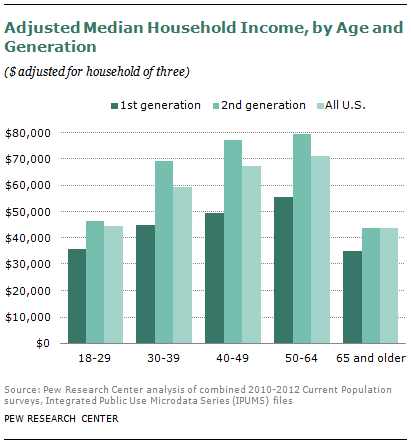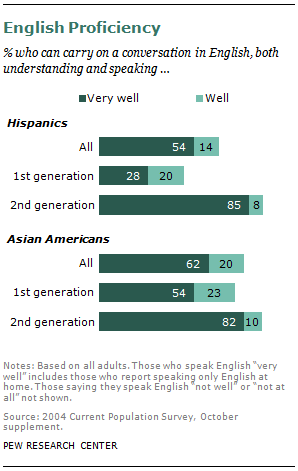A Statistical Look at the Immigration Problem in the United States
Immigration has stolen the spotlight this election season and many voters I've asked consider it the most important issue of the election. Many cite Europe as the future state of the US but after looking at some very interesting statistics, I have to disagree. The United States has a history, tradition, and culture of integrating people from a diverse set of backgrounds into our country; our nation is not defined by ethnicity or culture but by e pluribus unum--this is the single most important way that we differ from Europe. Now, let's take a look at the actual statistics!
The first I'd like to look at are second generation Americans, defined as having at least one immigrant parent. Not only do they make more money than the general population, they are also better educated.


Additionally, they speak english very well and have a higher ownership rate. Basically, after a single generation, immigrants in the US are fully integrated into our society.

Compare this to Europe where even third generation immigrants are less educated, make less money, and struggle to speak the native language.
The conclusions I can draw are:
- US immigrants are relatively successful and have fewer reasons to lash out against society
- US immigrants' children are virtually 100% assimilated, doing as well or better than those of us who have been here for generations
- US immigrants by and large do not live in multi-generational ethnic ghettos that breed contempt for society
This is a stark difference from the narrative that countries are sending criminals who are dragging down our economy and country. The statistics just don't back it up.